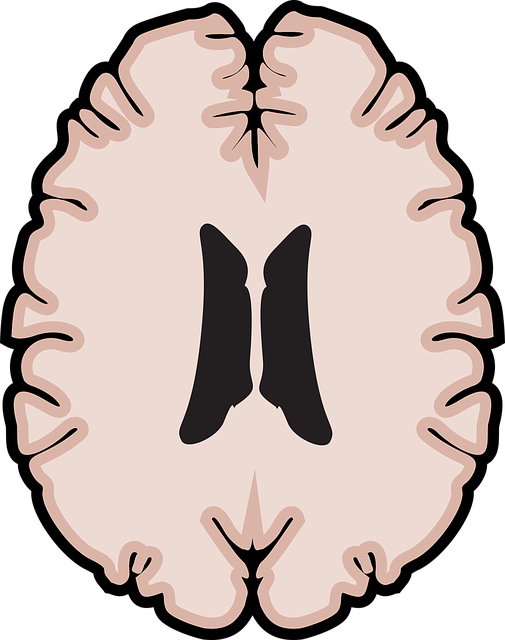In Colorado Springs, Crisis Intervention Teams (CITs) integrate mental health expertise with law enforcement to provide holistic crisis management. Their "Inner Strength Development" programs promote understanding and empathy using Mind Over Matter principles for de-escalation and cultural sensitivity. Training includes Colorado Springs grief counseling therapy techniques, self-care practices, and burnout prevention strategies. These comprehensive CIT programs, offered by organizations like Colorado Springs Grief Counseling Therapy, equip professionals to address acute distress and traumatic events with compassion and expertise, strengthening communities and fostering resilience.
In the vibrant, yet sometimes challenging, city of Colorado Springs, crisis intervention teams (CITs) play a crucial role in addressing mental health emergencies. This article explores the vital importance of CIT training programs, focusing on their impact in equipping professionals with effective tools for providing immediate support. We delve into specific strategies, including the integration of grief counseling therapy, that have proven instrumental in successfully implementing CITs within community settings. By understanding these programs, Colorado Springs can foster a more resilient and supportive environment for those facing crises.
- Understanding Crisis Intervention Teams: A Necessary Resource in Colorado Springs
- The Role of Grief Counseling in Emergency Response
- Training Programs: Equipping Professionals with Effective Tools
- Implementing and Evaluating Crisis Intervention Team Success in Community Settings
Understanding Crisis Intervention Teams: A Necessary Resource in Colorado Springs

In Colorado Springs, Crisis Intervention Teams (CITs) have emerged as a vital resource for addressing mental health crises in the community. These specialized teams, comprised of law enforcement officers, emergency medical personnel, and mental health professionals, are trained to respond to situations involving individuals experiencing severe emotional distress or suicidal ideation. By integrating law enforcement with mental health expertise, CITs offer a holistic approach to crisis management, ensuring that those in need receive immediate support and access to appropriate care without exacerbating the situation through forced involvement or confrontational tactics.
The presence of well-trained CITs in Colorado Springs is particularly significant given the growing recognition of mental health as a public health priority. Through their Inner Strength Development programs, these teams not only provide direct assistance during crises but also promote understanding and empathy within the community. By leveraging Mind Over Matter principles, CIT members equip themselves with effective communication strategies, de-escalation techniques, and cultural sensitivity training, fostering an environment where mental health concerns are met with compassion rather than punishment. This approach aligns with broader Mental Health Policy Analysis and Advocacy efforts, aiming to destigmatize mental illness and ensure equitable access to quality care for all Colorado Springs residents.
The Role of Grief Counseling in Emergency Response

In crisis intervention scenarios, particularly following traumatic events, the integration of grief counseling becomes an indispensable component of emergency response strategies in cities like Colorado Springs. Grief is a natural and complex reaction to loss, and when coupled with unforeseen circumstances, it can manifest in diverse ways. Therefore, training programs that include comprehensive Colorado Springs grief counseling therapy equip teams to address not just immediate physical needs but also the profound psychological impacts on individuals affected by emergencies.
Incorporating practices aimed at burnout prevention strategies for healthcare providers is crucial alongside mental health awareness initiatives. Self-care practices are essential elements within these programs, ensuring that crisis intervention team members can effectively manage their own emotional well-being while providing support to others. This dual focus not only enhances the quality of care but also fosters resilience among the responders, enabling them to navigate challenging situations with heightened compassion and professionalism.
Training Programs: Equipping Professionals with Effective Tools

In the realm of mental health support, crisis intervention team (CIT) training programs play a pivotal role in equipping professionals with effective tools to navigate and mitigate critical situations. These programs, often offered in cities like Colorado Springs, delve into specialized techniques aimed at providing immediate assistance during times of acute distress or traumatic events. Through interactive workshops, simulations, and robust curriculum, participants gain the confidence and expertise necessary to offer compassionate and skilled support, ensuring individuals in crisis receive the care they need.
The development of public awareness campaigns and conflict resolution techniques are integral components of these training programs. By fostering a deeper understanding of grief counseling therapy and crisis intervention guidance, professionals become better equipped to recognize signs of distress and respond accordingly. This proactive approach not only enhances individual well-being but also contributes to building stronger, more resilient communities where support is readily available for those in need.
Implementing and Evaluating Crisis Intervention Team Success in Community Settings

Implementing successful crisis intervention team (CIT) programs in community settings requires a multifaceted approach that combines training, support, and ongoing evaluation. At organizations like Colorado Springs Grief Counseling Therapy, CIT members receive specialized training to recognize warning signs of mental health crises and provide effective interventions. This includes learning evidence-based strategies for de-escalation, risk assessment, and connecting individuals with appropriate resources.
Regular team meetings, peer supervision, and opportunities for role-playing enhance the CIT’s collective resilience and ability to respond effectively in real-world scenarios. Additionally, rigorous evaluation processes are essential to track the program’s impact. This includes measuring improvements in community members’ access to crisis support, reductions in emergency room visits due to mental health issues, and increases in referrals to appropriate treatment options, including depression prevention and resilience building initiatives. Effective CIT programs foster a culture of care and early intervention, ultimately contributing to better outcomes for individuals facing mental health challenges.
Crisis intervention team (CIT) training programs are invaluable resources for communities like Colorado Springs, enhancing emergency response capabilities through specialized grief counseling therapy. These programs equip professionals with effective tools to support individuals in distress, ensuring a more compassionate and efficient system. By implementing CIT training and evaluating its success in community settings, Colorado Springs can foster a supportive environment where citizens receive the help they need during crises.














